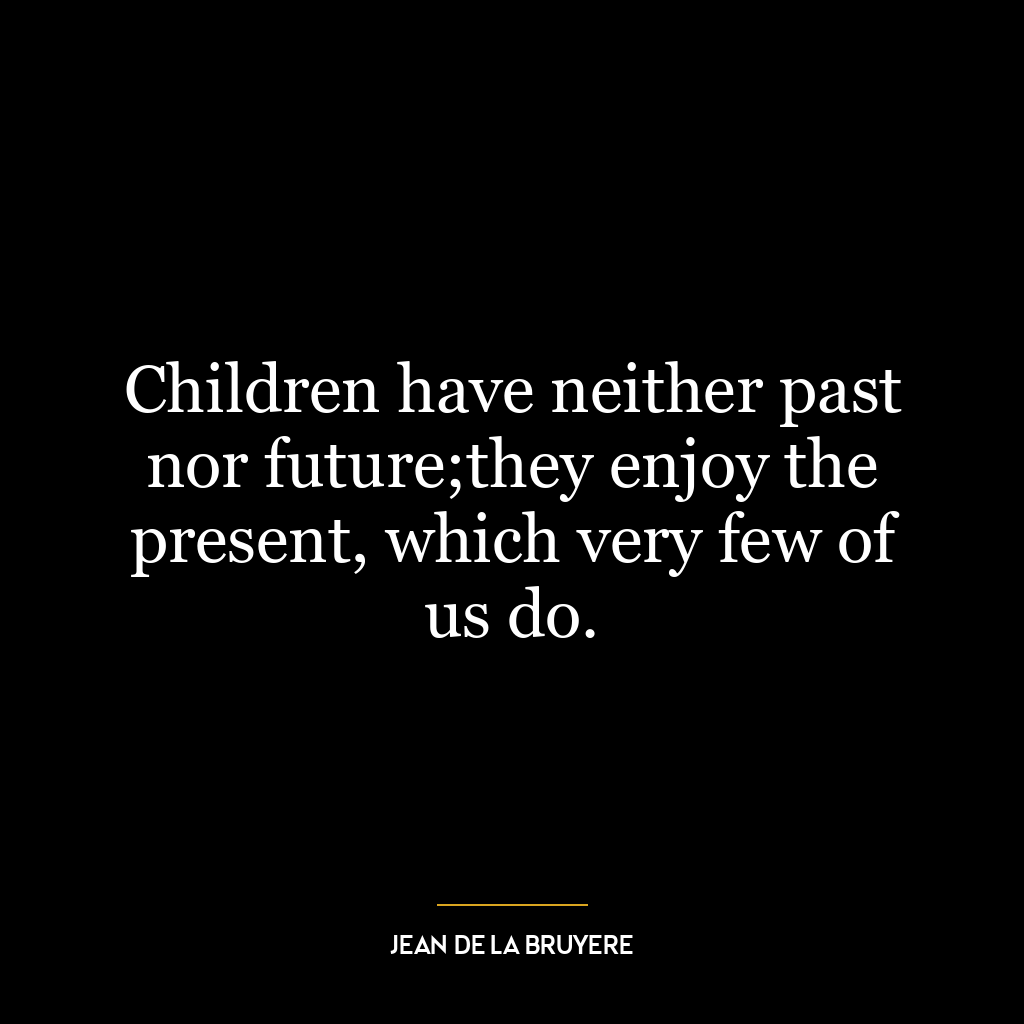The true enjoyments must be spontaneous and compulsive and look to no remoter end.
This quote suggests that authentic joy and satisfaction come from actions and experiences that are both spontaneous (not planned or contrived) and compulsive (driven by an irresistible urge or desire). Furthermore, these actions must not be performed with a distant goal in mind. In other words, true enjoyment is derived from living in the moment, acting on your impulses, and not being overly concerned about the outcome.
The concept of spontaneity here implies a sense of freedom from constraints or preconceived plans. It’s about letting go of control and allowing things to unfold naturally. On the other hand, compulsiveness signifies an intense desire to engage in something because it feels inherently rewarding rather than being motivated by external rewards or outcomes.
Applying this principle in today’s fast-paced world can be challenging but also liberating. Often we’re so focused on achieving specific goals – whether they’re related to career advancement, financial success, social status etc., that we forget to enjoy the journey itself. We might take up hobbies thinking about how they would look on our resumes rather than whether we genuinely enjoy them.
However, if we learn to value spontaneity more – say yes to unexpected opportunities, break routines occasionally for new experiences; if we follow our passions without worrying too much about where they will lead us; then according to Lewis’ idea expressed in this quote – such approach should bring us true enjoyment.
In terms of personal development too this idea could be highly beneficial. It encourages self-exploration without fear of making mistakes or deviating from societal norms. By doing what you love simply because you love it allows you discover your genuine interests and strengths which could eventually lead towards personal growth even though it wasn’t pursued with that intention initially.
It’s important however not to misinterpret Lewis’ words as advocating reckless behavior or ignoring future consequences completely but rather as a reminder that sometimes focusing too much on distant goals can rob us off present joys and spontaneous experiences that life has to offer.








